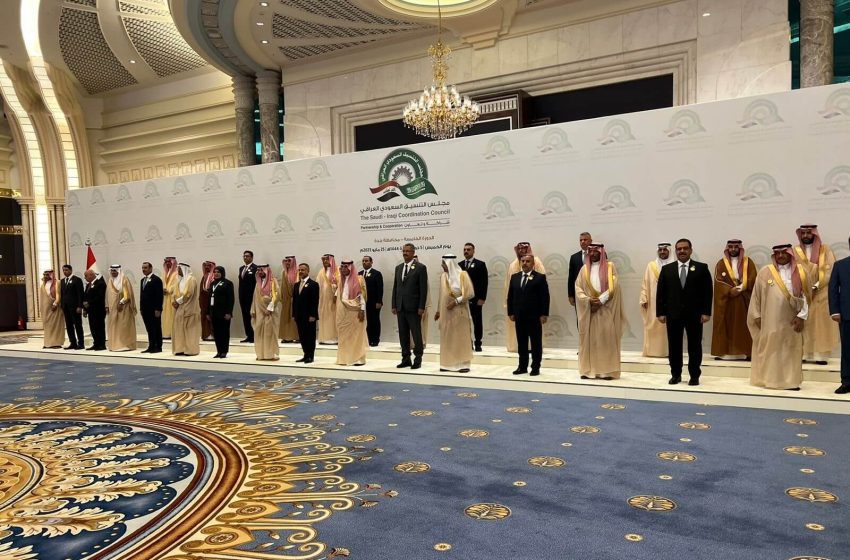Saudi-Iraqi Coordination Council’s 5th session concludes in Jeddah

Iraqi and Saudi ministers participating in the Saudi-Iraqi Coordination Council. Photo: Iraqi News Agency
Baghdad (IraqiNews.com) – The 5th session of the Saudi-Iraqi Coordination Council concluded in the Saudi city of Jeddah on Thursday.
During his speech in the session, the Iraqi Minister of Planning, Muhammad Ali Tamim, confirmed Iraq’s desire to achieve more success in terms of development in the two countries.
Tamim explained that the new phase of the council’s work is based on two tracks. The first is to complete the steps taken in previous stages to achieve economic, investment and trade integration between the two countries.
The second track is related to the tasks awaiting the council in light of the difficulties and challenges the world is facing; the most prominent of which is climate change, and it’s repercussions on food and health security.
Additionally, the Iraqi Planning Minister explained that important issues are discussed during the session, several memorandums of understanding in several fields are signed, and requirements of electrical interconnection are completed, adding that this session contributes to strengthening the cooperation between Iraq and Saudi Arabia.
The 5th session of the Saudi-Iraqi Coordination Council represents an extension of the joint efforts to strengthen and develop the bilateral relations between Saudi Arabia and Iraq at the strategic level and opens new horizons for cooperation in various fields.
Iraq and Saudi Arabia established the Saudi-Iraqi Coordination Council in 2017 to strengthen the relations and communication between the two countries.
The establishment of the Saudi-Iraqi Coordination Council also aims to promote bilateral relations in terms of economy, development, security, investment, tourism, culture, and media, and to coordinate policies and approaches towards international and regional issues.
